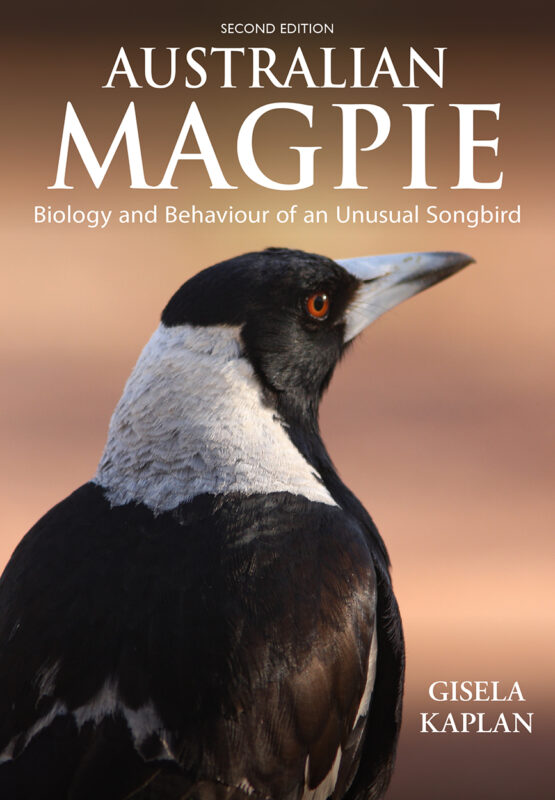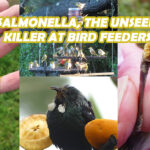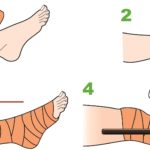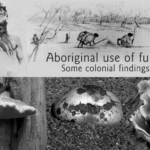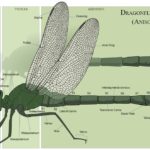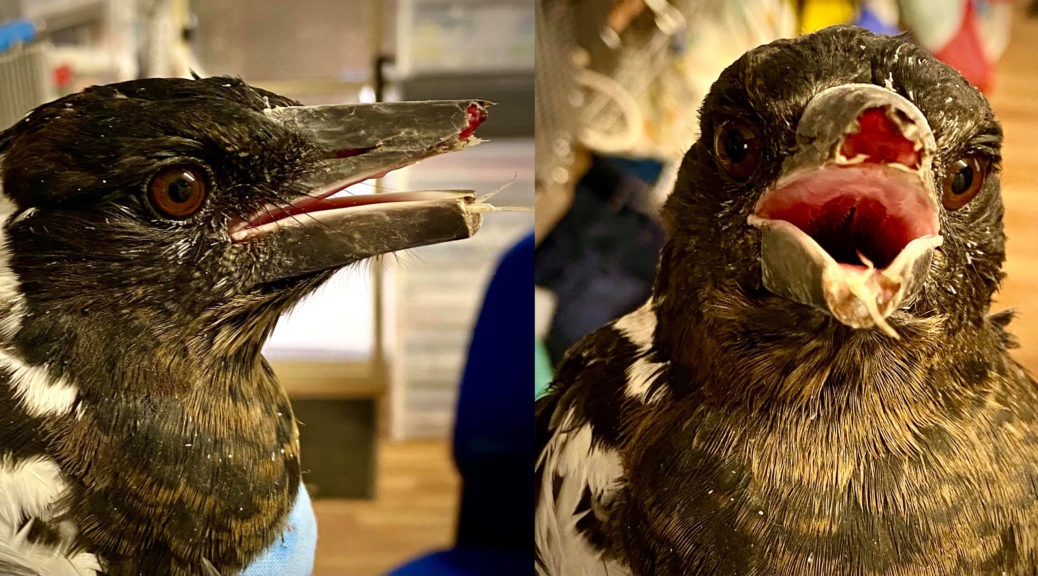
Feeding Advice for Magpies (and Other Insect Eaters – Ravens, Currawongs etc) BCCS
The Bird Care and Conservation Society Inc. discourages the public from feeding wild birds. We advise that native trees should be planted that provide nectar, pollen, seed and berries, and attract insects. This will be a permanent food source that will never go on holidays or move house leave the birds who are relying on a food source to go hungry.
Different birds have different dietary needs and generally eat a wide variety of food. Table scraps do not provide good nutrition for adult birds – or parent birds who are rearing young.
Magpies should never under ANY CIRCUMSTANCES be fed raw meat. NOT even as an occasional treat.
Insectivores such as magpies need a protein-rich diet with lesser amounts of carbohydrates and fat and they have extremely high calcium requirements.
Amazon #ads
If you feel that you must feed wild magpies we recommend the formula below. Only feed a small amount per day so that the birds will rely on natural food sources that will provide ALL their dietary requirements.
Formula
1 can Pal puppy food
Wheat germ
Heinz High Protein baby cereal
Wombaroo insectivore mix (available through your vet, or pet shop)
1 tablespoon chopped parsley
Half a cup of grated hard cheese i.e. Old Bitey
1 tablespoon of calcium carbonate
All of the above ingredients must be used.
If any are left out nutritional deficiencies can occur.
Add equal amounts of Heinz high protein baby cereal, wheat germ, and Wombaroo insectivore mix to the can of Puppy pal (one spoon of each at a time) until the mix is a moist crumble. Add the grated cheese, parsley, egg and calcium carbonate.
This makes a large supply that can be frozen in small amounts with each days supply being defrosted as necessary. All food must be fed fresh or freshly defrosted daily. All feeding dishes must be washed in hot soapy water daily to prevent disease.
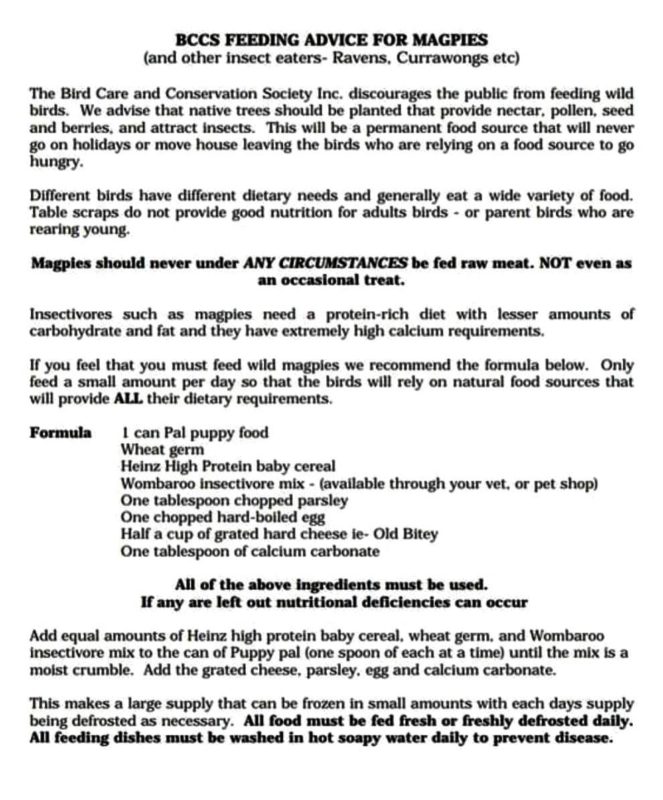
Update from Kanyana Wildlife Rehabilitation Centre
Australian Magpies have started their night-time singing and nest building, in preparation for spring. Once their nestlings hatch, around 10% of the adult males will protect their families from humans and pets – by swooping ![]() .
.
We have a few suggestions for this 6 week period!
If you feed your local magpies to avoid being swooped – please don’t! Long-term feeding can lead to painful metabolic bone disease, soft beaks and neurological problems, which are often fatal. It also disrupts magpie relationships and undermines their ecological roles. A healthy unsprayed garden with mulch, bird baths and beneficial insects is the best way to support magpies.
To avoid being swooped, you can also:
![]() Avoid areas with a swooping male
Avoid areas with a swooping male
![]() Hold a stick or umbrella above your head
Hold a stick or umbrella above your head
![]() Thread cable ties through bike helmets
Thread cable ties through bike helmets
![]() Wear sunglasses and a hat
Wear sunglasses and a hat
![]() Travel in groups
Travel in groups
![]() Don’t throw stones or yell – they can remember more than 30 faces!
Don’t throw stones or yell – they can remember more than 30 faces!
![]() Talk or sing to them, to show goodwill
Talk or sing to them, to show goodwill
![]() Get off your bike, so you don’t fall off if swooped
Get off your bike, so you don’t fall off if swooped
![]() Keep pets restrained
Keep pets restrained
![]() Check the Magpie Alert website for swooping hotspots
Check the Magpie Alert website for swooping hotspots
And please feel free to contact us if you have any questions about magpies – we are happy to help ![]() .
.
http://www.kanyanawildlife.org.au/
(08) 9291 3900
info@kanyanawildlife.org.au
#australianmagpie #koorlbardi #gymnorhinatibicen #cracticustibicen #swoopingseason #babybirdseason #djilba #spring #wildlifeconservation #CaringConservingConnecting
More info – Swoop Right Into Our Hearts: Four reasons to love magpies


